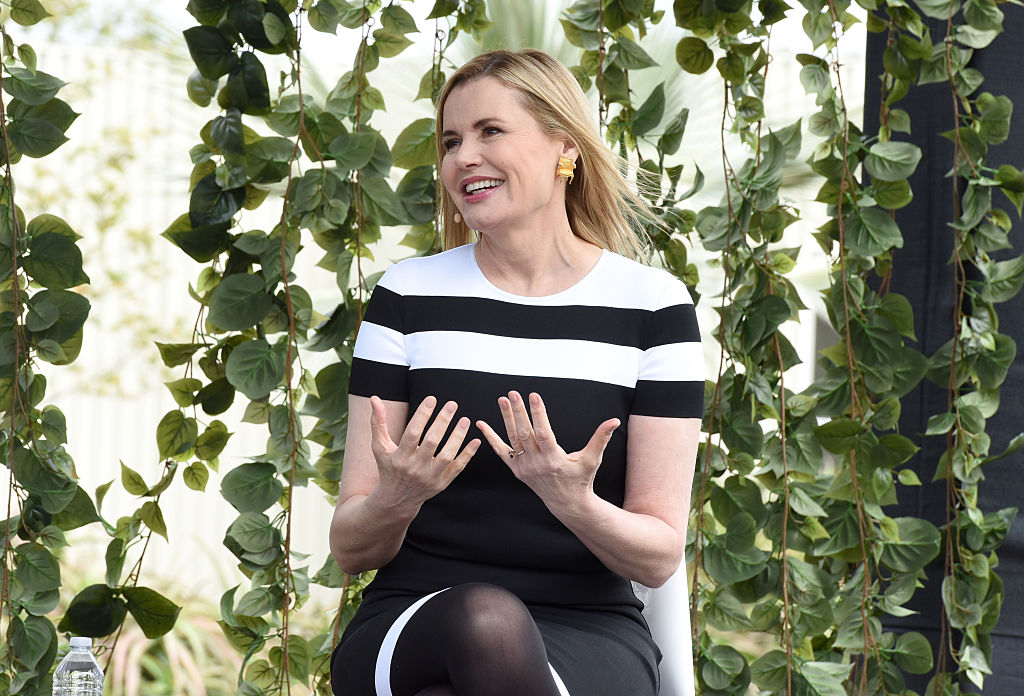Our favorite feminist film star and media analyst, Geena Davis, is at it again!
Davis has teamed up with CreativeChaos to develop a new documentary. The film, which will focus on gender disparity and stereotypes in the media, will also draw heavily upon original research conducted by the Geena Davis Institute on Gender in Media.
The Institute, founded by Davis, has made waves with its inspirational and groundbreaking findings on the way we see gender represented in TV and film. Through the foundation, Davis sponsors research that often focuses heavily on how children are affected by current depictions of gender in pop culture and mass media. Just this Spring, Davis presented the second annual BFF film festival, which features panel discussions and screenings to support gender and ethnic diversity in film. Now, Davis will take it one step further.
This film, which shares a mission similar to that of the widely acclaimed Miss Representation (a documentary of similar style focused largely on representations of women in advertisements and popular TV and music) will be directed by Tom Donahue. According to Variety, the film will combine perspectives of “experts and researchers” who will back up their stances with support from the Institute’s research and personal stories from “high-profile actors, executives, and artists in the industry.”
In addition to being moved by the obvious need for a change in the way current pop culture represents gender, Davis explained she was motivated by her own experience as an actress and by her own fear that things have stayed stagnant with regards to gender parity during the course of her career.
Davis was featured in nineties films A League of Their Own and Thelma and Lousie, both of which were successful films with strong women at their centers. After the positive reception each of the films received, TIME Magazine‘s Elissa Berman reports, Davis believed “a new wave of female-driven films would soon unfurl,” and begin to chip away at the glass ceiling for women in the industry. Instead, and to her disappointment, much has remained the same over the last several decades.
In her own article for TIME Magazine last Fall, Davis explained that she and other prominent women in the industry felt uncomfortable addressing the difficulties women face. Women feared there would be backlash if they were honest and didn’t want to be seen as complainers, so, instead, they justified the inequalities they faced. Davis, who is now one of the most vocal activists for women in TV and film, cites data from the Institute that shows “the ratio of male-to-female characters has stayed the same” and that similar disparity is true for those in behind-the-camera positions. Of course, she’s excited by great strides being made by some of her peers — women like Jennifer Lawrence and Reese Witherspoon — and by films that seek to shake up or even comment directly on the current situation.
The Institute also focuses on the representations of women in “media created for children” — for instance, Davis says “kids’ television has the worst ratio of female-to-male characters,” and that female characters are often objectified. An important aspect to the Institute’s work is creating resources for parents and teachers to use to combat the stereotypes children are currently inundated with. Davis’ Institute strives to provide positive role models for girls, based on the belief that a girl who “can see it can [someday] be it.”
If Davis’ past work is any indication, this documentary stands to spread important messages that will not only make audiences think about gender in the media in a new way, but will actually go beyond that by demanding and creating opportunity for change.




comments